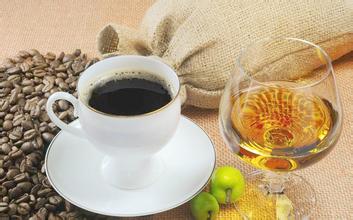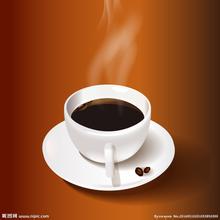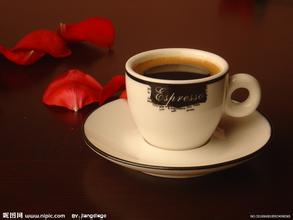Introduction to the characteristics of Hawaiian Fine Coffee Flavor Manor
In the old days of Hawaii, there was a strict social hierarchy. The Karp system divides people's grades and stipulates that men are superior to women. The highest social classes are chiefs and priests, the lowest are slaves, and those in the middle are civilians. The Karp system stipulates that where people of different levels fish and hunt, where they farm and harvest, what beaches they swim and play, what they eat and how they dress, violators are capital crimes. Hawaiians believe in gods and fatality. they believe that the power of God depends on the rank and age of God's family, so the status of people is also determined by the status of the family in society and the generation and age of people in the family. The older the seniority, the older the seniority. Hawaiians believe that if there is life, there is "Manai", which is the spirit and aura obtained from distant ancestors and gods. Hawaiians believe that souls are immortal after death, and the spirits of our ancestors often come back to bless their descendants. It's just that ordinary people have very little hemp, and they don't always get it from the gods in heaven like the chief. In order to protect their own Ma Nai, people taboo their own intimate clothes for other people to use.
In modern times, many traditional Hawaiians still believe that pillows cannot be stepped on or sat on. When a man goes fishing at sea, his family cannot ask him where he is going, nor can he entertain guests when the man is away from home. People who go to the sea cannot take bananas with him, otherwise they will have bad luck.
Modern Hawaiian customs have been integrated into the customs of ethnic groups all over the world. To be a guest in Hawaii, you have to take off your shoes before you can go in. This habit actually comes from the Japanese. In Hawaii, wearing a suit only when attending weddings, courts and funerals is a compromise between Hawaiian style and Western habits.
The earliest settlers in Hawaii arrived here between 300 and 400 AD, and historians speculated that they were from the Marcos Islands. People are scattered into different tribes that live on the island and are led by hereditary chiefs. The earliest Hawaiian residents created the rich musical culture of Hawaii, although not many words have been preserved.
Europeans discovered Hawaii by accident. They were looking for a legendary passage to the east where spices were produced, but they found the richest pearl in the Pacific Ocean. A captain named James Cook landed at Kauai in 1778 to resupply his ship. He encountered severe cold and storms on his way back, so he had to return to Hawaii at the beginning of the next year and anchor on a beach in Kona. Since then, the Hawaiian islands have become an important port of call on world trade voyages. The chiefs of Hawaii exchanged sandalwood, the island's specialty, for weapons, goods and livestock with passing ships. From the 1820s, Western religion began to spread widely on the island, and many churches built at that time are still in use today.
With the development of tourism in Hawaii, tourists can visit coffee farms, see or participate in various processes such as coffee harvest, coffee bean processing, baking and grinding, and make a cup of coffee that really belongs to them. In the Kona region, there are about 600 independent coffee farms, most of which are small family farms, usually between 18 and 42 acres. Kona Coffee earns more than $10 million a year for these coffee farms.
Kona coffee has always been grown at home. At first, only men were allowed to work in the coffee garden, and later women joined in. This kind of family production of Hawaiians preferred to rely on the efforts of their families rather than hiring workers to work, so it was normal for Hawaiians to have eight or nine children at that time. Since then, new immigrants from the Philippines, the United States and Europe have come to Hawaii to engage in the coffee industry. Over time, Hawaii has formed a social atmosphere that centers on family culture and is easy to absorb foreign cultures. and make it a major feature of Hawaii.
Hawaii is also a paradise for tasting and buying coffee. Each island has several unique places for tourists and local residents to taste and buy coffee, including comfortable and warm shops and comprehensive centers to introduce coffee knowledge.

Important Notice :
前街咖啡 FrontStreet Coffee has moved to new addredd:
FrontStreet Coffee Address: 315,Donghua East Road,GuangZhou
Tel:020 38364473
- Prev

Introduction to the characteristics of high-quality Rwandan boutique coffee beans flavor and taste manor
The watershed between the Congo basin and the Nile basin runs through Rwanda from north to south, with about 80 per cent of the country draining from the Nile and about 20 per cent from the Ruzi River and Lake Tanganyika. The longest river in the country is the Niabalongo River (Nyabarongo River) in the southwest, which turns north, east and southeast and flows into the Luwuwu River to form the Kagaila River.
- Next

Indonesian Java coffee with rich flavor, fine coffee flavor, taste, estate characteristics
Acidity: The strong acidity characteristic of all coffee grown in the plateau. The sour and spicy here is different from bitter and sour, and has nothing to do with pH value. It refers to a fresh and lively quality that promotes coffee to play a role in boosting the mind and cleansing the taste. The acidity of coffee is not acidic or sour in pH, nor does it make people uncomfortable when entering the stomach.
Related
- Detailed explanation of Jadeite planting Land in Panamanian Jadeite Manor introduction to the grading system of Jadeite competitive bidding, Red bid, Green bid and Rose Summer
- Story of Coffee planting in Brenka region of Costa Rica Stonehenge Manor anaerobic heavy honey treatment of flavor mouth
- What's on the barrel of Blue Mountain Coffee beans?
- Can American coffee also pull flowers? How to use hot American style to pull out a good-looking pattern?
- Can you make a cold extract with coffee beans? What is the right proportion for cold-extracted coffee formula?
- Indonesian PWN Gold Mandrine Coffee Origin Features Flavor How to Chong? Mandolin coffee is American.
- A brief introduction to the flavor characteristics of Brazilian yellow bourbon coffee beans
- What is the effect of different water quality on the flavor of cold-extracted coffee? What kind of water is best for brewing coffee?
- Why do you think of Rose Summer whenever you mention Panamanian coffee?
- Introduction to the characteristics of authentic blue mountain coffee bean producing areas? What is the CIB Coffee Authority in Jamaica?

